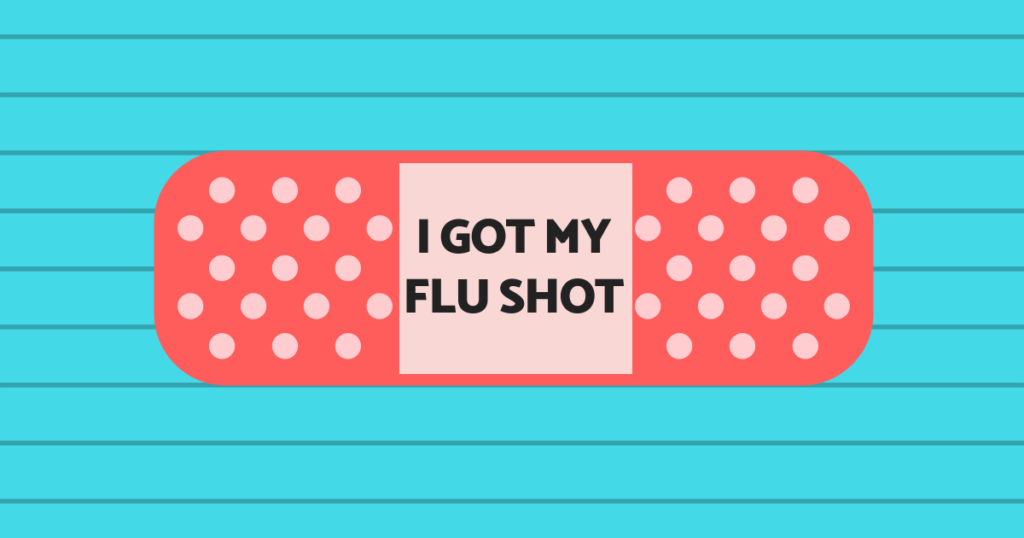8 Things You Need to Know About Getting Your Flu Vaccine
As we transition into fall, we'll not only be fighting one big respiratory illness, but two. While coronavirus and the flu may have similar symptoms, transmissions, and contagion periods, the difference is, we have a vaccine in our fight against the flu. Getting your flu shot can help protect yourself and the people around you from the flu, as well as reduce the strain on healthcare systems responding to the coronavirus pandemic. Here's what else you need to know about the flu vaccine this year.
1. Getting your flu shot is more important than ever.
Not only will getting a flu shot help to prevent you from becoming sick, it will also prevent high hospitalization numbers that make it difficult on the healthcare system, essential workers and supplies that are already strained during the current pandemic.
2. You can have COVID-19 and the flu at the same time.
Health experts are still studying how common this can be, but why not lower your chances of it happening? Reduce your risk for the flu so that you're not stuck with the severity of having both illnesses at once.
3. The time to be vaccinated is now.
The CDC recommends people get a flu vaccine no later than the end of October, but encourages people to get vaccinated later, rather than not at all. It's important to be vaccinated before the flu begins spreading locally, keeping in mind that it takes a few weeks for the vaccine to become fully protective.
4. Everyone 6 months of age and older should get a flu vaccine every season, with rare exception.
These exceptions are:
- Children younger than 6 months of age
- People with severe, life-threatening allergies to flu vaccine or any ingredient in the vaccine. This might include gelatin, antibiotics, or other ingredients.
Those who especially should get a vaccine include:
- Essential workers (healthcare personal and other critical infrastructure workforce)
- People at an increased risk for severe illness from COVID-19 (adults aged 65+ and/or with underlying medical conditions)
- People at increased risk for serious influenza complications (infants and young children, pregnant women, adults aged 65+)
5. You cannot get the flu from the flu vaccine.
According to the CDC, hundreds of millions of Americans have safely received the flu vaccine over the past 50 years. There are common side effects of the flu shot that may persist and present like the flu, but as Dr. William Schaffner, professor of infectious diseases at the Vanderbilt Medical Center, stated, "that's just your body working on the vaccine and your immune response responding to the vaccine...it's a small price to pay to keep you out of the emergency room."
In rare cases where an individual gets the flu after vaccination, typically they were already infected with the virus and symptoms had not presented yet. These are the instances where it may appear that the flu shot caused the flu, when in reality; it was timing or a pre-existing weakened immune system.
6. Do not get a flu shot if you suspect you have COVID-19.
Vaccination should be postponed for people with suspected or confirmed COVID-19, regardless of whether they have symptoms, until they have met the criteria to discontinue their isolation.
7. Flu vaccines will not protect you against COVID-19.
However, flu vaccines have been shown to reduce the risk of flu illness, hospitalization and death, which is important for conserving resources during the pandemic.
8. Plenty of drugstores, grocery stores and clinics offer flu shots for free.
The best place to get a flu shot is wherever is easiest and most convenient for you. Many local pharmacies offer walk-in availability for flu shots, including the high-dose varieties for those 65 years of age and older. Find a location near you by clicking here, or ask your TargetCare provider how to make an appointment today.

In a time during which we feel a lot is out of our control, let's focus on what we can control- which includes getting a flu shot. We all have a social responsibility to protect ourselves and others from both COVID-19 and the flu, so it's important to do your part and get vaccinated.
